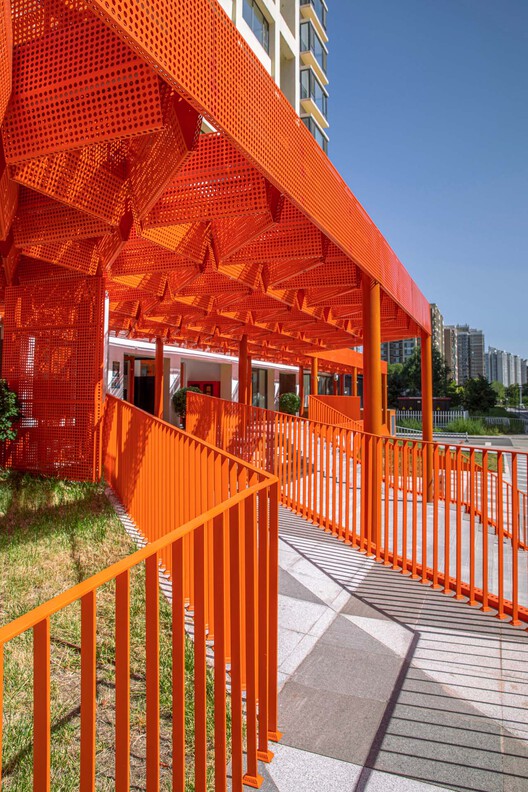
-
Architects: People's Architecture Office
- Area: 22210 m²
- Year: 2021
-
Photographs:Weiqi Jin

Text description provided by the architects. The Home Office Tower converts a residential building into much-needed office space in the city of Tiantong Yuan, known as the “largest sleeping city in the world”.

Tiantong Yuan is the home of over 700,000 people who make the hours-long commute back and forth to Beijing each day. The large concentration of residential-only developments in Tiantong Yuan results in massive daily traffic jams on the way to downtown Beijing. During working hours, Tiantongyuan becomes a ghost town. The Home Office Tower is the first project of this type in the Tiantong Science and Technology Park. It is a focus area for the city-wide Huitian Plan, which aims to provide a greater mixture of uses in this residential area by converting vacant residential buildings into office buildings.



The conversion process involved the partial reinforcement of the original building’s structure and carving out a ring around the building core through the original residential units. Some areas were enclosed to provide shared restrooms and common areas. Additional spaces were added on the ground floor and basement levels such as shared office areas and meeting rooms. And a cafeteria, gym, market, and cafe provide much-needed amenities for the surrounding community.



The landscaping around the office building is designed as a public space for office workers as well as local residents. Landscaping and Orange colored building elements provide shade and public areas with seating for rest and gatherings. Lighting is incorporated into these additions to extend the period of use for these spaces into the evening. The orange additional also serves to distinguish it from surrounding residential towers and broadcast conversion from a distance.



Projects such as the Home Office Tower can drastically impact the lives of residents in Tiantongyuan. People can walk instead of driving, have more time for meals with their families, and balance work life with exercise and entertainment. In addition, reduced commute times and more transportation options for moving between places result in a significant reduction in pollution.









































